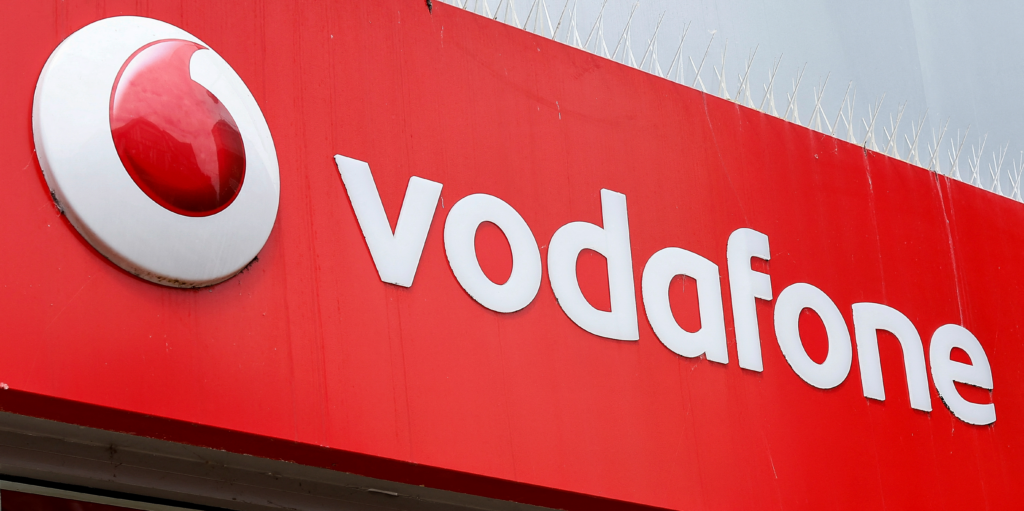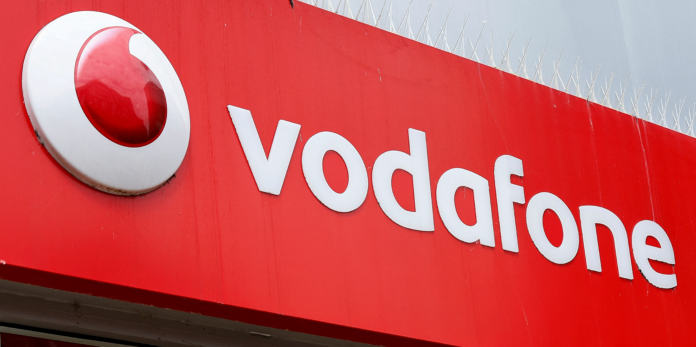Vodafone and Amazon announced today their plans to extend their 4G/5G networks across Europe and Africa. Through Project Kuiper’s low Earth orbit (LEO) satellite constellation. Kuiper Systems LLC, or Project Kuiper for short is an Amazon subsidiary that was created back in 2019 with the mission of launching an expansive satellite internet network. A network delivers lightning-fast broadband internet access with minimal latency.
This strategic collaboration between the renowned British telco and Washington-based Satellite Internet access company will see the complete participation of both companies in beta testing Project Kuiper’s innovative services, slated to commence in 2024. The objective is clear—leverage Project Kuiper’s high-bandwidth, low-latency satellite network to deliver affordable 4G/5G connectivity to regions that have historically remained disconnected from the internet. Project Kuiper will establish vital connections, linking far-flung cellular antennas to the core telecom networks of Vodafone and Vodacom. Effectively circumventing the time and expense typically associated with deploying fibre-based or fixed wireless links to the core networks.
However, the collaboration Vodafone and Amazon doesn’t stop at expanding network reach. Amazon, the driving force behind Project Kuiper, envisions partnering with Vodafone to roll out high-speed broadband services to unserved and underserved communities on a global scale, not just in Africa. Both corporations are actively pursuing the possibilities of custom enterprise solutions, that meet the connectivity needs of businesses worldwide. These solutions encompass a range of offerings. From strong and reliable backup services for unforeseen events to expanding internet connectivity to rural infrastructure.
Speaking on the Partnership
Chief Executive of Vodafone Group Margherita Della Valle, expressed the overarching mission of the partnership between Vodafone and Amazon. “Vodafone’s work with Project Kuiper will provide mobile connectivity to many of the estimated 40% of the global population without internet access. Supporting remote communities, their schools and businesses, the emergency services, and disaster relief. These connections will be complemented further through our own work on direct-to-smartphone satellite services.”
Meanwhile, Dave Limp, Amazon’s Senior Vice President for Devices and Services, affirmed that the project’s grand vision was to improve access to the internet, especially to those in remote areas. “Amazon is building Project Kuiper to provide fast, affordable broadband to tens of millions of customers in unserved and underserved communities. And our flexible network means we can connect places that have traditionally been difficult to reach.”
He further mentioned that “Teaming with a leading international service provider like Vodafone allows us to make a bigger impact faster in closing the digital divide in Europe and Africa. Together we’ll explore how we can help our customers get the most value from expanded connectivity. Particularly in areas like residential broadband, agriculture, education, healthcare, transportation, and financial services.”
The CEO of Vodacom Group Shameel Joosub, reinforced the commitment to bridging the connectivity gap in Africa. “At Vodacom, our purpose is to connect for a better future. And we work every day to bring more people in Africa online.” “Collaborating with Project Kuiper gives us an exciting new path to scale our efforts. Using Amazon’s satellite constellation to quickly reach more customers across the African continent.”
The implementation of these innovative plans is contingent on the deployment of Amazon’s production satellites. Amazon plans to commence testing two prototype satellites in the coming months, with full-scale production satellite deployment expected in 2024. The timeline is set for beta testing of Project Kuiper services with select customers by the end of 2024.
Vodafone’s Contributions Extends Beyond Internet Connectivity

Vodafone, through its various initiatives and platforms, is actively engaged in addressing several United Nations Sustainable Development Goals (SDGs). The healthcare sector is on the precipice of transformation through technology. The convergence of digital tools and rapid connectivity promises to revolutionize healthcare access and patient care in remarkable ways. However, several nations still face pressing challenges in delivering good healthcare to the masses. Sub-Saharan Africa, in particular, bears the brunt of this crisis, driven by frail health systems and limited access to emergency care and transportation.
Vodafone and UN Sustainable Development Goals
In more ways than one, Vodafone provides support to healthcare providers across the globe with digital tools and better access to data to deliver better care. Vodafone provided connectivity to emergency hospitals across Europe and in Spain, the company was able to connect 500 wireless IoT alarms to the hospital beds of the largest hospital in Madrid. While in South Africa, their subsidiary Mezzanine, provided a PPE stock visibility solution to 350 hospitals for monitoring over 3,000 facilities across the country.
In response, to the maternity crisis, Vodafone introduced m-mama. An emergency referral service that connects pregnant women with emergency transport in locales where getting conventional ambulances isn’t feasible. This transformative solution is not confined to a single nation. It has single-handedly reduced maternal mortality by as much as 38% in certain regions of Tanzania. Vodafone has extended m-mama’s reach to Lesotho. And is on the brink of launching in Kenya, thanks to a dynamic partnership with USAID. With anticipated launches in other sub-Saharan African nations.
In the pursuit of other Sustainable Development Goals, Vodafone and Safaricom launched M-PESA, the flagship mobile money service in 2007. And also lends its support to addressing the eradication of hunger. With eVuna, a lifeline for small-scale farmers to access credit, and connect to potential buyers. Vodafone also has a Connected Education platform in Africa that empowers both students and teachers with resources.
Are Vodafone and Vodacom the Same?
Established in the year 1985, Vodafone is a prominent British mobile network operator, with a reach that extends far beyond the United Kingdom. The telecommunications giant has a huge presence in many countries across every continent. In terms of access and in areas where digital technology, especially internet connectivity is being utilized there has been quite a tremendous impact.
From its homeland in the United Kingdom to the far reaches of Albania, Australia and Czech Republic, to Germany. And Spain, Greece, Hungary, Iceland, Ireland, Italy, the Netherlands, New Zealand, Portugal, Romania, Turkey, Qatar, and Ukraine. Vodafone remains an integral part of expanding the coverage of mobile technology globally.
On the other hand, Vodacom is a prominent South African mobile operator. While its roots may have originated in South Africa, Vodacom has expanded to several other African nations. Presently, Vodacom actively operates in South Africa, Kenya, Ghana, Egypt, Tanzania, the Democratic Republic of Congo, Zambia, etc.
In 1994, through a collaboration between Telkom and Vodafone, South Africa initiated its mobile telecommunications services with the inception of Vodacom. Although it wasn’t until 2008 that Telkom made the strategic decision to cede its ownership of Vodacom to Vodafone.
